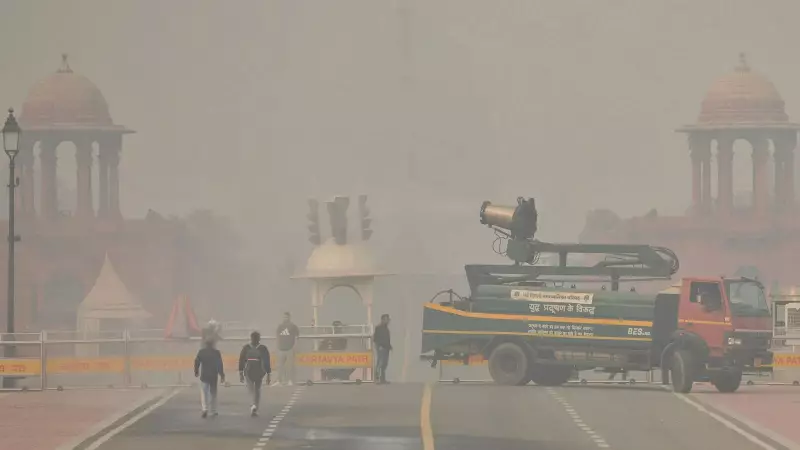
Delhi residents are facing a severe health crisis as the city's air quality has plummeted to 'very poor' levels, prompting urgent warnings from medical experts. Former AIIMS director Dr. Randeep Guleria has issued a stark advisory that's sending shockwaves through the capital.
'Consider Leaving Delhi' - Doctor's Dire Recommendation
In what many are calling the most candid medical advice ever given about Delhi's pollution, Dr. Guleria didn't mince words. "If you have the option to leave Delhi for a few days, you should seriously consider it," the renowned pulmonologist stated, highlighting the gravity of the situation.
What 'Very Poor' AQI Means for Your Health
The current Air Quality Index readings between 301-400 fall in the 'very poor' category, posing significant health risks even to healthy individuals. Medical experts warn that exposure to such polluted air can lead to:
- Immediate breathing discomfort and respiratory irritation
- Aggravation of asthma and bronchitis symptoms
- Increased risk of respiratory infections
- Long-term damage to lung function
- Cardiovascular complications
Who's Most at Risk?
While the pollution affects everyone, certain groups face heightened dangers:
- Children and elderly - More vulnerable to respiratory illnesses
- Pregnant women - Risk to both mother and developing fetus
- People with pre-existing conditions - Asthma, heart disease, diabetes patients
- Outdoor workers - Extended exposure increases health risks
Essential Protective Measures You Can't Ignore
For those who cannot leave the city, doctors recommend these critical precautions:
Mask Up Properly: Don't just wear any mask - use N95 or equivalent respirators that can filter out fine particulate matter effectively.
Limit Outdoor Activities: Avoid morning walks, jogging, and strenuous exercises outside when pollution levels peak.
Create Clean Air Spaces: Use air purifiers at home and in offices, especially in bedrooms where you spend most of your time.
Stay Hydrated: Drink plenty of water to help your body flush out toxins and maintain respiratory moisture.
The Winter Pollution Crisis Explained
This annual environmental emergency results from a perfect storm of factors: vehicle emissions, industrial pollution, construction dust, and most critically - stubble burning in neighboring states combined with unfavorable meteorological conditions that trap pollutants close to the ground.
The situation serves as a grim reminder that Delhi's air pollution isn't just an environmental issue - it's a full-blown public health emergency demanding immediate attention and action from both authorities and citizens.






